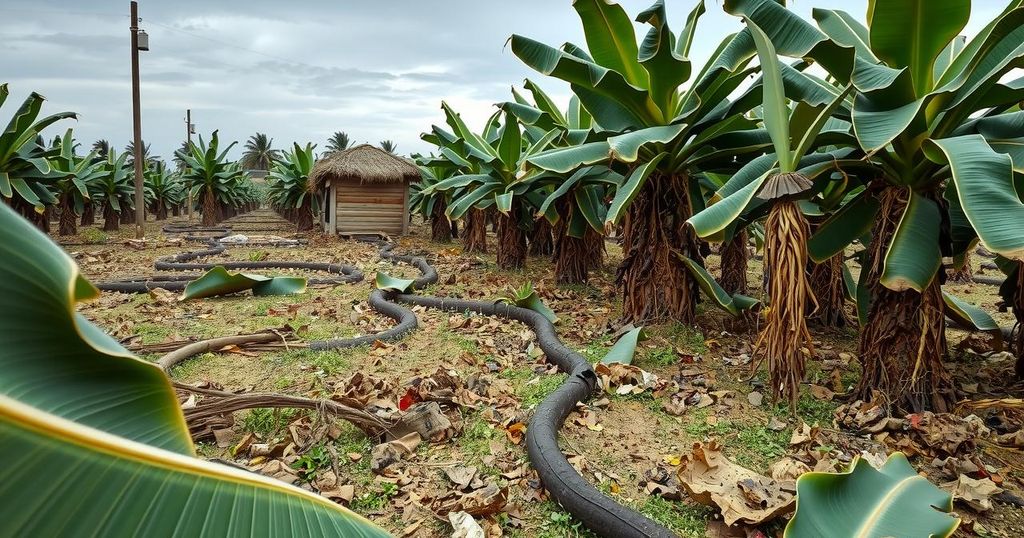The banana plantations in Formosa, Argentina, have been severely affected, decreasing from 1,000 to 500 hectares due to drought and frost. Producers have sought government aid but remain unsupported. The escalating costs have rendered farming unsustainable, despite the potential to substantially increase banana production if assisted by government initiatives.
The banana cultivation sector in Formosa, Argentina has witnessed a drastic decline, diminishing from approximately 1,000 hectares to 500 hectares due to the combined effects of severe drought and frost. The unusual climatic conditions led to a complete devastation of the crops in August, prompting local producers to seek assistance from government officials. Despite meetings held with Secretary of Agriculture, Sergio Iraeta, producers have reported a lack of tangible aid over 100 days after the initial outreach. The costs of production have escalated, leaving farmers unable to sustain operations, with one representative stating, “We will not have fruit until April… zero profitability until then.” Furthermore, the Secretary indicated that the provision of aid relies on the Ministry of Economy, which has not shown significant interest. Producers express readiness to expand banana production to over 20,000 hectares, potentially catering to the consumption needs of 500,000 tons within Argentina if government support is forthcoming.
The challenges faced by banana producers in Formosa stem not only from adverse weather conditions but also from a broader context of insufficient government policies and market pressures. In recent years, agricultural sectors have struggled with inconsistent support leading to issues such as financial instability and reduced productivity. The farmers express a desire for a more proactive government involvement that could leverage the area’s agricultural capacity effectively. The impending effects of climate variability further compound these challenges, as farmers must contend with unpredictable weather impacting yield and sustainability.
In summary, the banana sector in Formosa is grappling with significant challenges stemming from climatic adversities and lack of governmental assistance. Despite the capacity for substantial production, local farmers are facing an existential threat to their livelihoods. The emphasis on improved support from government entities is crucial in revitalizing the sector and ensuring stability. Without actionable support and sustainable practices, the future of banana cultivation in the region remains precarious.
Original Source: www.freshplaza.com






